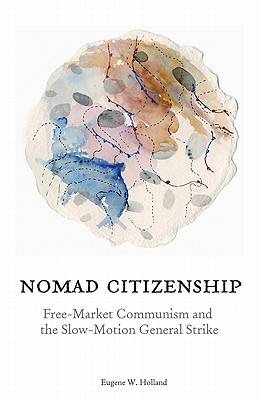
- Retrait gratuit dans votre magasin Club
- 7.000.000 titres dans notre catalogue
- Payer en toute sécurité
- Toujours un magasin près de chez vous
- Retrait gratuit dans votre magasin Club
- 7.000.0000 titres dans notre catalogue
- Payer en toute sécurité
- Toujours un magasin près de chez vous
Nomad Citizenship
Free-Market Communism and the Slow-Motion General Strike
Eugene W HollandDescription
Nomad Citizenship argues for transforming our institutions and practices of citizenship and markets in order to release society from dependence on the state and capital. It changes Deleuze and Guattari's concept of nomadology into a utopian project with immediate practical implications, developing ideas of a nonlinear Marxism and of the slow-motion general strike.
Responding to the challenge of creating philosophical concepts with concrete applications, Eugene W. Holland looks outside the state to analyze contemporary political and economic development using the ideas of nomad citizenship and free-market communism. Holland's nomadology seeks to displace capital-controlled free markets with truly free markets. Its goal is to rescue market exchange, not perpetuate capitalism--to enable noncapitalist markets to coordinate socialized production on a global scale and, with an eye to the common good, to liberate them from capitalist control.
In suggesting the slow-motion general strike, Holland aims to transform citizenship: to renew, enrich, and invigorate it by supplanting the monopoly of state citizenship with plural nomad citizenships. In the process, he offers critiques of both the Clinton and Bush regimes in the broader context of critiques of the social contract, the labor contract, and the form of the state itself.
Spécifications
Parties prenantes
- Auteur(s) :
- Editeur:
Contenu
- Nombre de pages :
- 344
- Langue:
- Anglais
Caractéristiques
- EAN:
- 9780816666133
- Date de parution :
- 29-11-11
- Format:
- Livre broché
- Format numérique:
- Trade paperback (VS)
- Dimensions :
- 142 mm x 213 mm
- Poids :
- 317 g

Les avis
Nous publions uniquement les avis qui respectent les conditions requises. Consultez nos conditions pour les avis.






